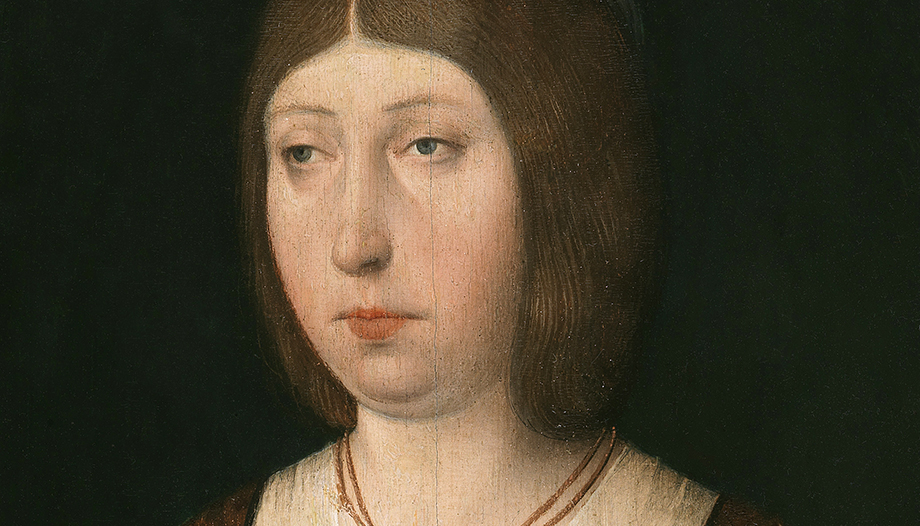A piece of news that could have gone unnoticed at the time was the resumption of the cause for the beatification of Isabella the Catholic by the Spanish Episcopal Conference, at the request of Pope Francis. In the last assembly of the Pontifical Commission for Latin America, according to Cardinal Cañizares, the topic of women in the Church was discussed, and it was when Francis encouraged the resumption of a process that had been paralyzed for years.
The process of beatification of Queen Isabella suffered a halt in 1991 (just before the V Centenary of the Discovery of America), citing the expulsion of the Jews from Spain as the main reason.
In October 2018, two symposiums were held in Valladolid and Granada on the figure of the Queen, who together with her husband, Ferdinand the Catholic, played an essential role in the end of the Reconquest and the Discovery of America.
Currently there is a very favorable circumstance and that is the granting of Spanish nationality to the Sephardim by the previous government, since it was a historical injustice that has been repaired.
The Pope's words could be the definitive impetus for a beatification that remains controversial but which could come from the hand of the first American Roman Pontiff in history.
The great French historian Jean Dumont says in his excellent work about our protagonist The Incomparable Isabella the Catholic: "Elizabeth's sanctity has been established, without possible discussion, in the 28 thick volumes of documents gathered by the postulator of her Cause of beatification, Father Anastasio Gutierrez."
The famous queen of the 15th century loved music, poetry and theater and was apparently an exceptional horsewoman. But above all, Isabella loved God and her neighbor. Starting with her own husband, King Ferdinand, whom she married after the sudden death of her first suitor, and continuing with any of her subjects, not excluding the last of them.
About the call "expulsion of the Jews" It has been argued that it was in fact a kind of suspension of permission to stay in Spain, as was done in all European countries, without this representing any insult and much less anti-Semitism on the part of the Queen, contrary to what has been said and written.
On the reconquest of Granada, Isabella and Ferdinand only crowned an enterprise that began in 718 in Covadonga and whose main objective was the defense of the Catholic faith.
The problem of the Inquisition, on the other hand, has generally been focused on "from a false approach"The religious phenomenon of the "inquisition", as denounced by the postulator Anastasio Gutiérrez, without historians having stopped to consider the real reason that set in motion the entire inquisitorial apparatus of the Kingdom of Castile: the religious phenomenon of the "inquisitors". "converts".
Elizabeth was, according to all existing documentary evidence, a prudent and just Queen; a mother who suffered terribly because of the irreparable loss and suffering of her children; a woman who deeply loved her husband; and a daughter of the Church who defended the Catholic faith until her last breath.
The fortitude of a woman who had to face suffering from a very young age is exemplary. The death of her brother when she was only 15 years old, the attempt on the life of her husband Ferdinand of Aragon or the premature death of her heir, Prince John, and her firstborn daughter Isabella, as well as the ordeal she endured with her daughter Joan, were some of the trials she faced during her life.
It is well known that evangelization was the main reason for Queen Elizabeth's support for the trip to America, and thanks to her, 500 million people pray to God in Spanish.
Characterized by her apostolic zeal, in her first meetings with Christopher Columbus, the sovereign was impressed by the possibilities that the project offered for the extension of the Catholic faith.
"Most religious, like a priest devoted to the worship of God, of the Virgin, of the saints... Given to divine things much more than to human things." This is how the person in charge of the Royal Chapel, Lucius Marinius Siculus, described our monarch.
Hers is one of the many direct testimonies of the virtues that, to a heroic degree, Isabella of Castile lived and that the Cause of Beatification reviews: from faith, hope and charity, to humility, fortitude, temperance, justice and prudence.
Spain, which has contributed so much in a positive way to the evolution of universal history, has had many good kings and queens throughout the centuries. Only two have been canonized to date: Saint Hermenegild and Ferdinand III the Saint.
The beatification of Queen Elizabeth would be not only a recognition of her sanctity of life, but also a tribute to the role of our country since its origins in the defense of the Christian faith.
To some this may seem like a thing of the past, but it is not. For too long we have lived with the "black legend" that our enemies have spread, persuading even many Spaniards of it.
Of course, mistakes have been made in the history of Spain, as in the history of any country that has had the historical importance of ours.
But it is also legitimate and healthy for everyone to be aware of the irreplaceable contributions we have made in the course of history. The doctrine of human rights, which originated in the School of Salamanca in the 16th century and which has so much to do with the Christian character of our nation, is not the least of these. And a better knowledge of the personality and work of Queen Isabella could be an excellent stimulus at the present time, as well as a good model for our future Queen Leonor.








